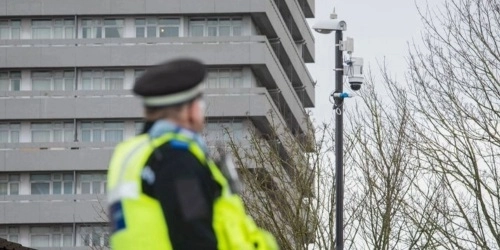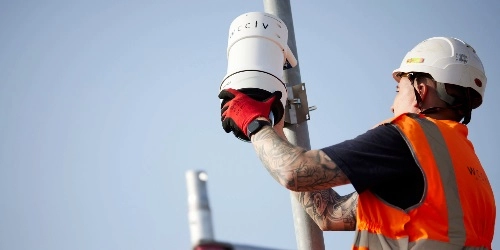

View navigation
Durham County Council installed our CCTV units in four former colliery streets as part of a fly-tipping intervention project, following a large number of instances of this crime in these particular streets.
Known for being an area of natural beauty and a World Heritage Site in the Northeast of England, Durham County Council prides itself in the landscape of its community and maintaining this.
Along with new signage, their aim was to deter fly-tipping and reduce the number of instances this particular area was facing for residents living in the surrounding terraced housing.
Following some research on fly-tipping in Durham, the Council identified the four former colliery streets as fly-tipping hotspots that would benefit from intervention.
With fly-tipping clearance costing up to £200 and extreme cases costing up to £1000, the repercussions of such crimes create heavy financial implications for Durham County Council.
Due to lack of evidence, many fly-tipping incidents will go without any consequences to the criminals themselves and the Council will be unable to gain back the financial loss they have been faced with.
Durham County Council invested in our Redeployable CCTV Cameras to strategically target the four former collier streets that were found to be fly-tipping hotspots.
Requiring no complex setup process, these cameras usually take around 20-minutes to install and connect wirelessly over mobile networks which allows for threats to be monitored near enough immediately after setup.
Ideal for fly-tipping deterrence and monitoring, our Redeployable CCTV Cameras provide high-quality video and audio, supplying PTZ technology that makes for easy tracking of any criminals.
For future use, Durham County Council would be able to redeploy the cameras elsewhere if other locations become hotspots, ensuring flexibility if required.
As the leading supplier of CCTV technology to the public sector, WCCTV supported the Council with the tools, support, and guidance needed to ensure the most effective results.
Learn more about them in the video below:
With the implementation of WCCTV’s Redeployable Cameras alongside the new signage, Durham County Council noted there was a 64.8% reduction in fly-tipping incidents.This was measured three months prior to the installation and three months post-installation to track the differences for the fly-tipping intervention project.
Within this, there was a reduction of calls reporting fly-tipping issues, showing the CCTVs purpose was achieved, and is now successfully mitigating over half the issues previously being reported.
Additional benefits were also found in supporting criminal proceedings with fly-tipping on those streets. Several investigations were conducted based on footage captured via the CCTV cameras, with two of the investigations leading to a fine and penalty notice.
The delivery of WCCTV’s security solution helped both deter crime and maintain Durham County Council’s natural beauty, whilst supporting the local authority to prosecute individuals, further helping prevent fly-tipping in future.



Contact us
A more flexible and convenient solution to your security and surveillance challenges is just a step away. Get in touch with our security experts and let us know how we can help.